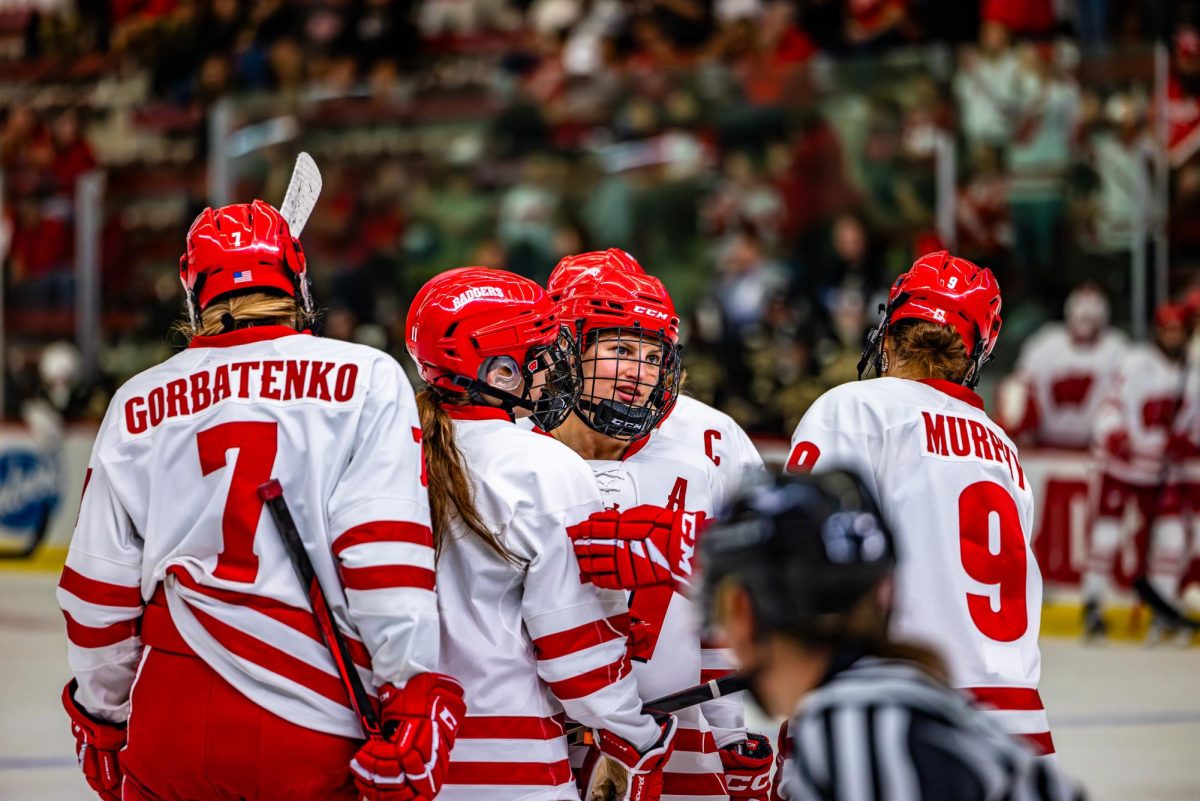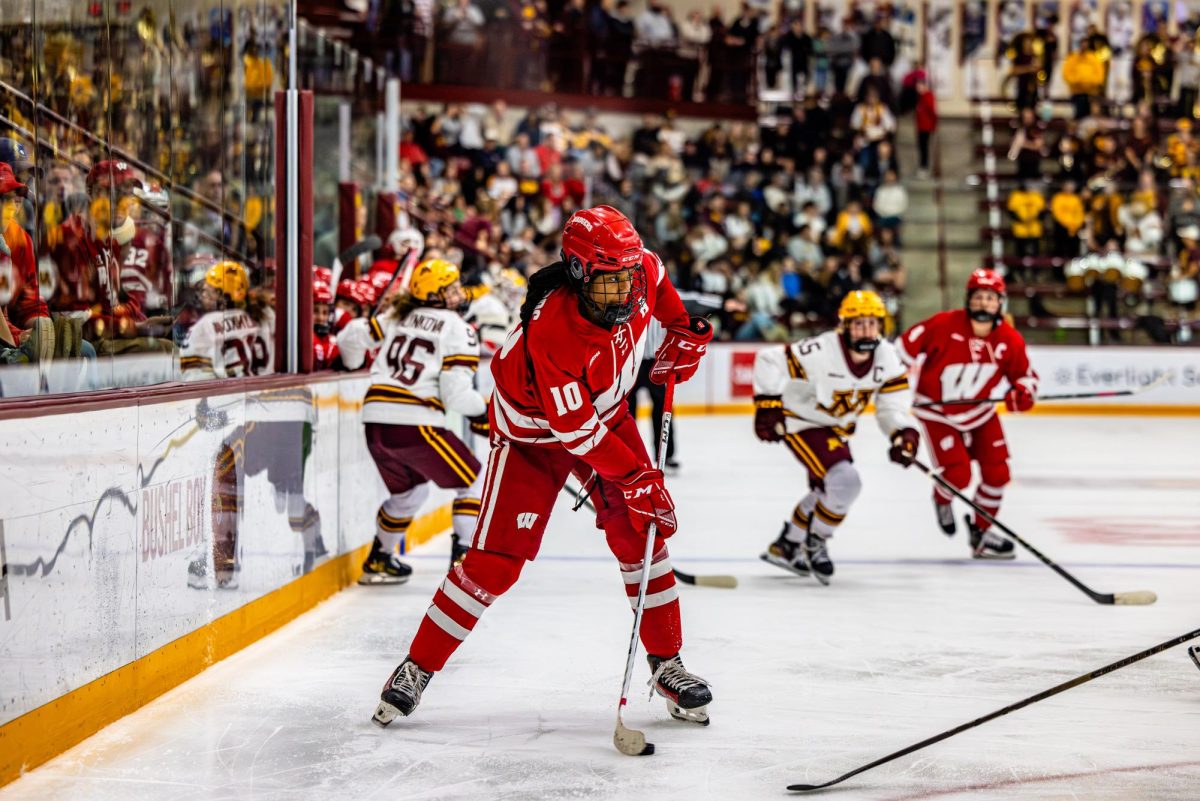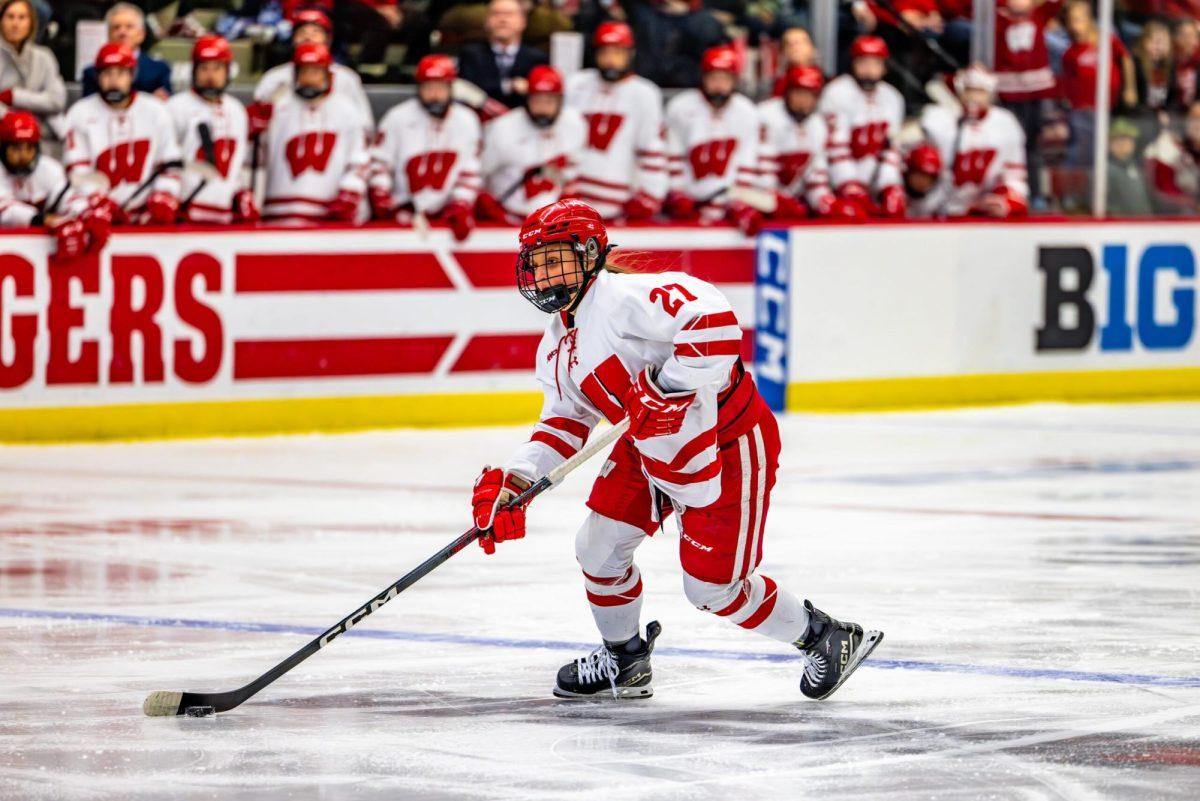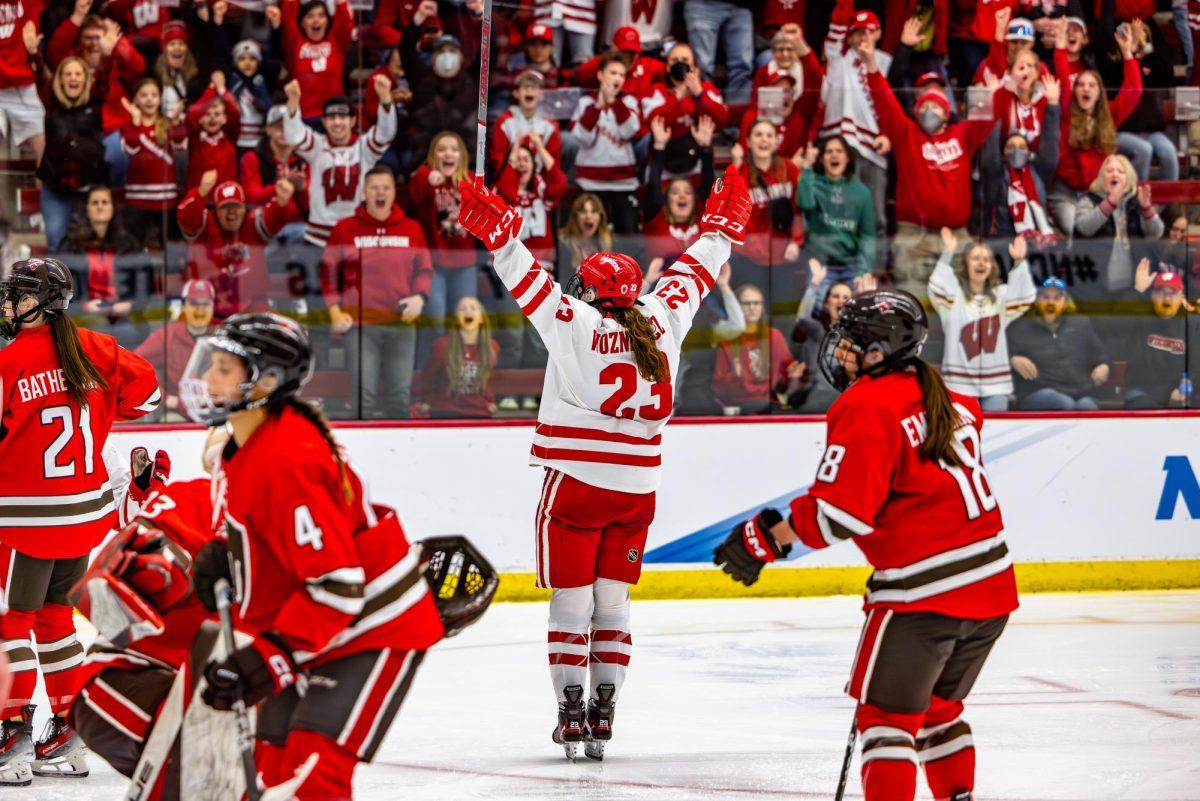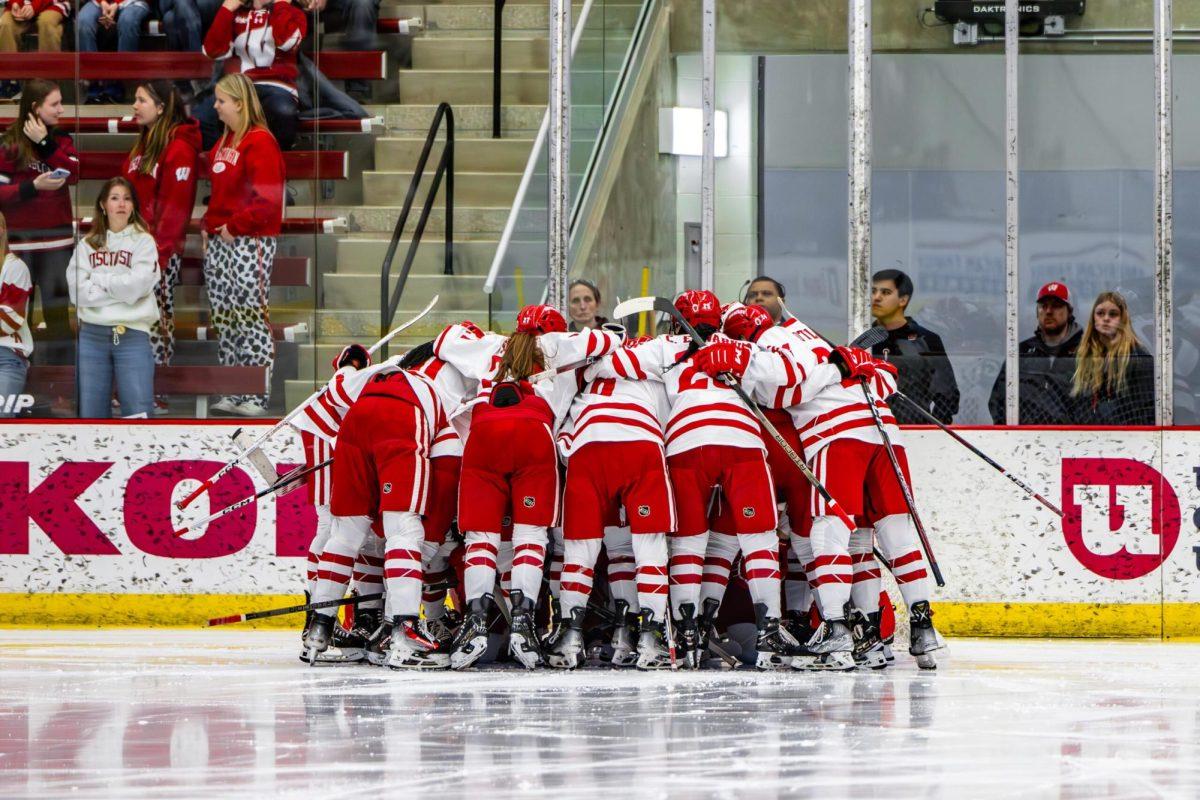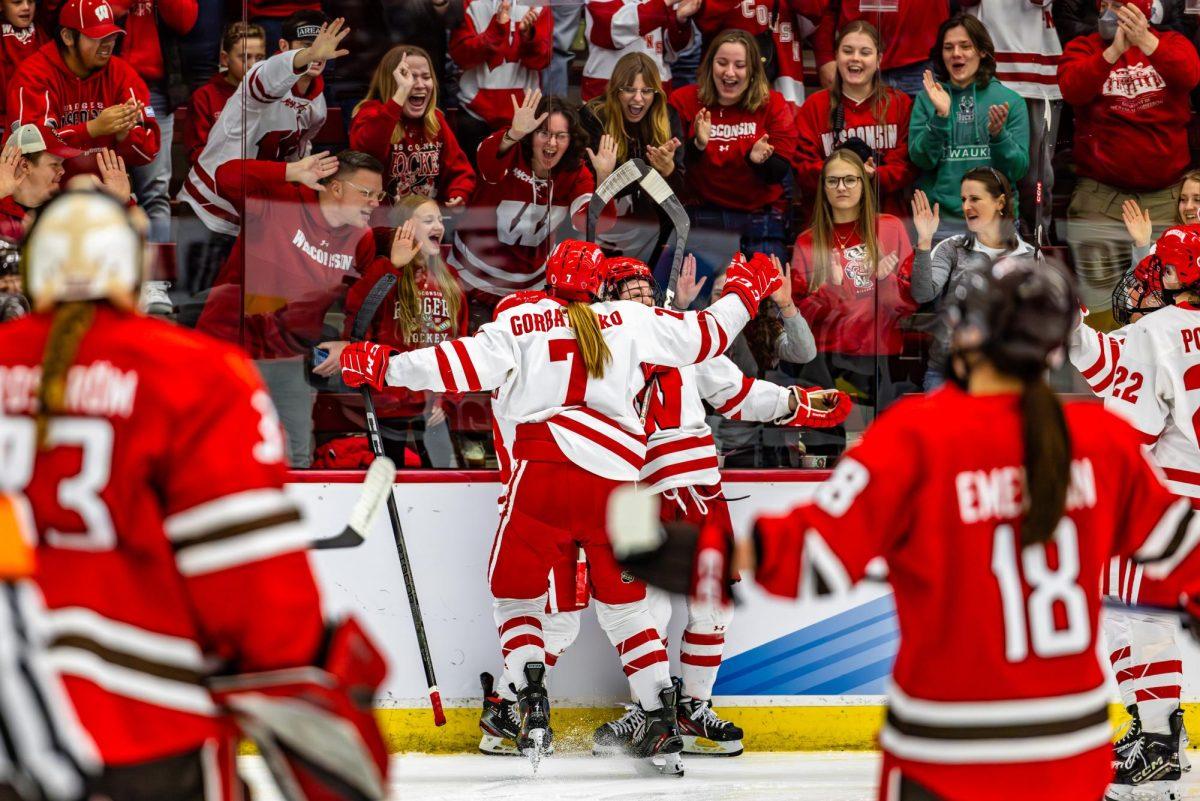
When expectations for a national championship precede the first game of the regular season, it is reasonable to believe a team might fold under the overwhelming pressure.
Apparently, the Wisconsin women’s hockey team is replete with non-believers.
The Badgers finished off their season by winning their fourth national championship in six years with a 4-1 victory over Boston University in last Sunday’s title game.
The Badgers held the No.1 ranking in the country for the majority of the season, finishing with a program-record 37 wins.
Wisconsin went 27 straight games without a loss to close out the season, beating some of the nation’s top programs in Minnesota, Minnesota Duluth, Boston College and Boston in their last four to cap off the championship run.
The season began, however, with a loaded roster and the inherent high expectations.
From the outset, it was apparent there was only one team who could stop the Badgers: Themselves.
With talent like senior captain Meghan Duggan and junior forward Hilary Knight, both of whom won silver for the United States in last year’s Olympics in Vancouver, coalesced with up-and-coming goal scorer Brianna Decker (who is likely to see some Olympic ice-time of her own in the very near future), there was no telling how well this team would play.
The season began in a fashion the Badgers expected with blowout wins against inferior competition like Rensselaer and Bemidji State, outscoring them 22-1 in their first three games.
However, Wisconsin seemed to let down a bit in the next few games and had to scramble for victories against teams it should have put away early.
The usually affable Mark Johnson post-game interviews turned more serious and became riddled with words like “consistency” and “preparation” and assertions of how his team failed to excel at both.
Let imagination run wild with the other words he might have used with his team in the locker room and at practice, but following the lull Wisconsin once again posted a string of lopsided victories to improve its record to 16-1-1 at the halfway point of the season.
Two things about Wisconsin were apparent through the first half of the regular season. One: If the team played with the consistency Johnson consistently preached about, there was hardly a team in the country who could skate with the Badgers. Two: The team could score goals at will.
Collectively, Wisconsin scored 212 goals, averaging 5.17 per game, which was almost a goal and a half better than any other team in the WCHA (Minnesota Duluth was second with 132 and an average of 3.88).
Individually, Duggan and Knight, as expected, shined throughout the season. In 41 games played, Duggan led the league in scoring with 87 points (2.12 points per game) and Knight led the world in goals with 47 and 81 points in total.
But the player who put the team over the top was sophomore standout Decker. The young goal-scorer put up 80 points with 46 assists and 34 goals. The only two girls she trailed in scoring in the WCHA were her teammates Duggan and Knight.
To begin the second half of the season, Wisconsin clashed with a team it would meet once again in the first round of the NCAA tournament.
Minnesota Duluth came to the Kohl Center and gave the Badgers trouble, as they forced overtime in the first game and then handed the Badgers their first and only home loss of the season in the second.
Instead of regressing, the weekend galvanized Wisconsin and propelled the Badgers toward the playoffs. After the tough series, Wisconsin would not lose another game for the remainder of the season.
Down the stretch, the Badgers continued the scoring onslaught, beating teams, on occasion, with offensive performances of nine or even 10 goals.
During the latter portion of the season, the defense, led by the veteran defenseman Geena Prough and sophomore Stefanie McKeough, began to step up its play. Wisconsin finished the season second in the conference with 1.71 goals allowed per game.
Freshman net minder Alex Rigsby, who garnered the majority of the starts close to playoff time over sophomore Becca Ruegsegger, also looked as though she was figuring out the fast paced Division-I game.
In a WCHA league full of accomplished goaltenders, Rigsby finished the season second with a 1.76 goals against average.
Rigsby’s hot streak, in concert with Wisconsin’s improved defensive play and consistent scoring attack, pushed the team into the postseason as the favorite to win the WCHA and NCAA tournament championships.
In the first round of the WCHA tournament, the top-seeded Badgers drew a St. Cloud State team that had won only once during the regular season. After disposing of the worst team in the conference, Wisconsin beat North Dakota 3-0 in the semifinals, which set up the conference final game against rival Minnesota.
The Badgers trailed in the game early until finally tying it up late in the third period to send it to overtime. In the extra session, third-liner Kelly Nash beat the Golden Gopher netminder for the game winner.
The win gave Wisconsin the momentum it needed heading into the NCAA Tournament, especially because the NCAA’s selection committee curiously chose Minnesota Duluth, a team ranked fourth in the country for much of the season, to match up with top-seeded Wisconsin in the first round.
In a tightly contested game, Duggan and Knight broke through with tallies to propel the Badgers 2-1 over the Bulldogs and on to the Frozen Four in Erie, Pa.
With only 48 seconds remaining in the semifinal round of the national tournament against Boston College, Decker lit the lamp to send Wisconsin to the title again against Boston University.
The NCAA championship game was close early, as Wisconsin held a slim 2-1 lead heading into the third period. But senior Mallory Deluce beat Boston’s net minder and junior Carolyne Prevost found pay dirt in an empty net to ensure the victory and a Wisconsin Badgers national championship.
Winning a national title is an impressive feat in and of itself, but doing so with a giant bull’s eye sewn on the back of your sweater, getting every team’s best shot every night, is down right incredible.
Next year, the Badgers will lose one-third of the high-powered scoring trio of Decker, Duggan and Knight, as the senior Duggan has finished her college career (though on the highest note possible, as she not only won her third national championship, but also the Patty Kazmaier Memorial Award, given to the top women’s player in college hockey).
But don’t expect Wisconsin’s offense to lose too much of its potency with Knight, Decker and Prevost returning.
And even if they can’t score with the ease they found this season, they always have one of the best up-and-coming goaltenders in the country in Rigsby.








